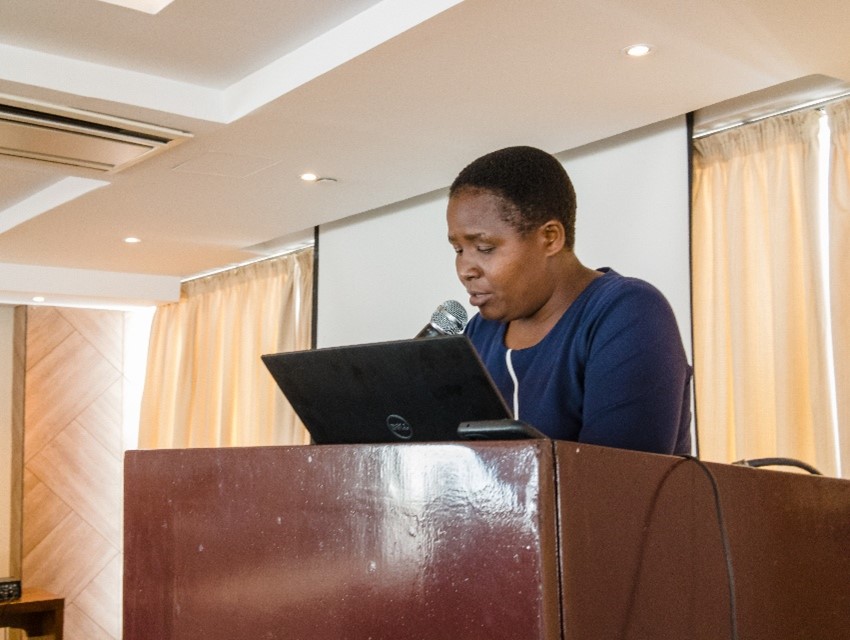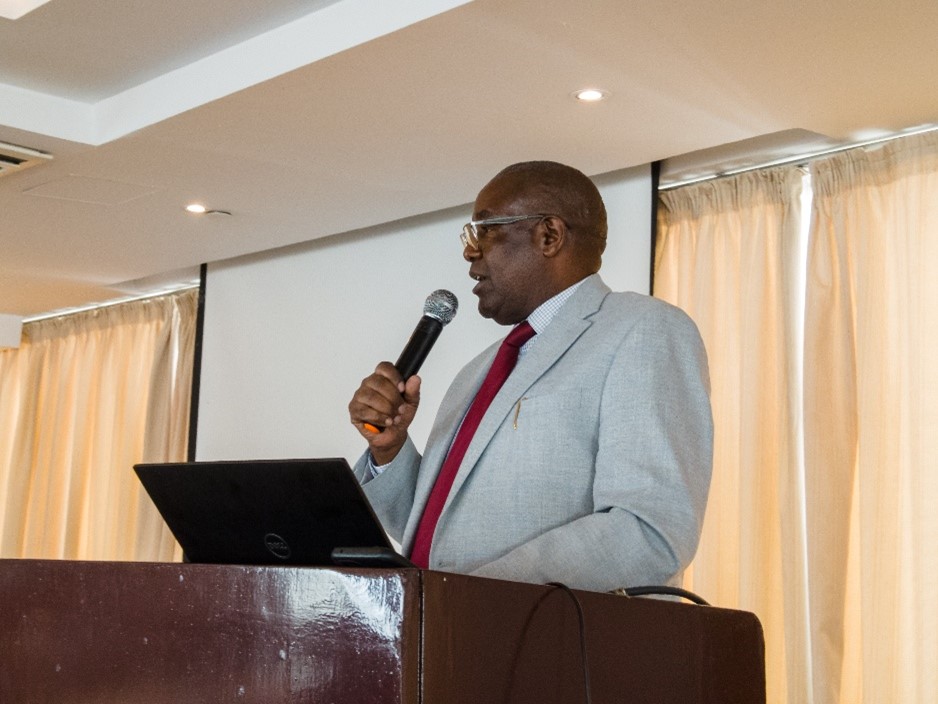CREATES Stakeholder Validation Workshop closes with strong support from local stakeholders
On Wednesday 7th of May 2025, the CREATES Programme brought together key stakeholders, in Nairobi, Kenya, to validate the programme design and governance structure.

The Climate Resilient Eastern African Transboundary Water Management for Environmental Sustainability (CREATES) programme is a five-year regional initiative designed to enhance climate resilience in the management of shared water resources in Eastern Africa. Responding to escalating challenges such as water stress, climate-induced disasters, and ecosystem degradation, the programme will support integrated water resources management that includes sustainable land use practices. Aligned with the Paris Agreement, the Sustainable Development Goals, and the Sendai Framework, CREATES is part of the European Union’s Team Europe Initiative (TEI) on Transboundary Water Management for Africa. The programme represents Denmark’s contribution and is in the final stages of approval by the Danish Ministry of Foreign Affairs (DANIDA) and when approved will have a budget of DKK 300 million. The main implementing agencies will be IUCN and UNEP-DHI. The initiative focuses on the Sio-Malaba-Malakisi (Uganda–Kenya) and Mara (Kenya–Tanzania) transboundary basins, as well as a regional learning component. Its four outcomes include: governance and institutional strengthening, sustainable infrastructure, data-driven decision-making, and stakeholder capacity building—form the foundation for achieving a climate-resilient and environmentally sustainable future.
CREATES programme design has evolved over two years of stakeholder’s consultations and collaboration process and embodies the spirit of partnership, uniting governments, basin institutions, civil society, the private sector, and communities to create integrated solutions that address local needs while contributing to global goals. This programme is not a final blueprint but a living framework, shaped by comprehensive consultations across the Mara and Sio-Malaba-Malakisi (SMM) transboundary basins. — Charles Oluchina, Regional Programme Coordinator, IUCN ESARO
The workshop convened to present the CREATES programme, gather stakeholder feedback, discuss institutional anchoring, governance structures and operational roles, and outline the next steps toward full programme launch. It brought together key potential implementing partners, including Water Directors and Transboundary Officers from Kenya, Tanzania, and Uganda, catchment managers from the Sio-Malaba-Malakisi and Mara basins, and representatives from key regional institutions such as the Nile Basin Initiative (NBI), Nile Equatorial Lakes Subsidiary Action Program (NELSAP), Lake Victoria Basin Commission (LVBC), and Nile Basin Discourse (NBD). Additional participants included officials from the Danish Embassy in Nairobi, as well as representatives from international NGOs such as World Wildlife Fund (WWF) – Kenya and Tanzania and Global Water Partnership Eastern Africa (GWP EA). The workshop was facilitated by Nicholas Azza, an independent expert in transboundary water governance.
The Danish government, represented by the Danish Embassy in Kenya, reaffirmed Denmark’s strong partnerships with IUCN and UNEP-DHI and highlighted that the CREATES programme aligns closely with Denmark’s priorities: climate adaptation, locally led action, and Nature-based Solutions. Denmark’s commitment to translating these principles into practical, on-the-ground impact was emphasized.
Water Directors from Kenya, Uganda, and Tanzania also attended the event. In their remarks, they reaffirmed that the CREATES programme is a solution-oriented initiative that will directly benefit grassroots communities and help address many of the pressing challenges faced in managing transboundary water resources.

“Climate change threatens us all, and through CREATES, Kenya is committed to working with our regional partners to build resilience, protect our shared water resources, and deliver sustainable solutions for our communities.” — Gladys Wekesa, Director of Transboundary Water Management, Kenya
“Tanzania sees CREATES as a vital opportunity to align development with sustainable water management—what we need now is strong local ownership, meaningful stakeholder participation, and real, on-the-ground impact.” — Jamila Tua, on behalf of the Director of Water Resources, Tanzania”

“With CREATES, we are starting on a strong foundation—together. Coordination, inclusivity, and ownership will be key to ensuring meaningful contributions from all partners, from the very beginning through implementation.” — Callist Tindimugaya, Director, Ministry of Water and Environment, Uganda

CREATES has been built on the experience of both IUCN and UNEP-DHI from implementing transboundary water management programmes in the region. Particularly, IUCN is building on the successful developments in the Sio-Malabo-Malakisi basin under its Building River Dialogue and Governance (BRIDGE) initiative, which has been active in the basin since 2016. This Swiss funded initiative lays the foundation for IUCN’s approach to transboundary water cooperation and water diplomacy, as well as the multi-level governance approach—working from community level to national and regional institutions, which the CREATES programme will adopt.
CREATES is not here to replace existing efforts—it’s here to strengthen, complement, and build on what’s already working.” – James Dalton, Global Water & Wetlands Team Director, IUCN
In the meeting it was also announced that a dedicated Project Management Unit (PMU) will be established at IUCN ESARO’s office in Nairobi. This unit will coordinate programme activities, with guidance from a Steering Committee and an Advisory Panel to ensure strategic alignment and accountability.
“The Steering Committee is not meant to be just another formality—it will play a strategic role in guiding implementation, monitoring progress, managing risks, and ensuring lessons from the region inform the programme as it evolves,” emphasized Joakim Harlin, UNEP-DHI
The programme’s governance is designed to support learning and agility and CREATES will evolve through a consultative and iterative process. Annual work plans will be developed and presented for Steering Committee approval, allowing the programme to remain responsive to stakeholder needs and emerging opportunities.
We are not finishing consultations with this workshop. Your views and ideas will continue to shape the program during the implementation of the activities on the ground through the project management unit (PMU), steering committee, and advisory board. — John Owino, Water and Wetlands Programs Manager, IUCN ESARO
With CREATES placing a strong focus on transboundary water challenges and other shared environmental issues tied to natural resource management, there is real hope for meaningful impact at the grassroots level. We look forward to 2026 as the tentative start date for this important work. The collaboration of key stakeholders from Kenya, Uganda, and Tanzania is a clear sign of our collective commitment to work together for the benefit of our communities.


